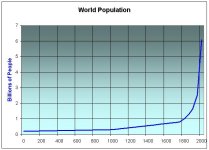IslandTractor
Super Star Member
- Joined
- Sep 15, 2005
- Messages
- 16,647
- Location
- Prudence Island, RI
- Tractor
- 2007 Kioti DK40se HST, Woods BH
How's it different? Selecting genes in a lab or selecting them in a field, its still manipulating one thing to get another thing.
Here's a link to an article in this month's issue of National Geographic to a story about why do many reasonable people doubt science. One of the things they discuss is genetically modified foods. Its a good read.
Why Do Many Reasonable People Doubt Science? - National Geographic Magazine
Excellent article. May I suggest that the moderators have everyone on the "friendly politics" forum read it.

